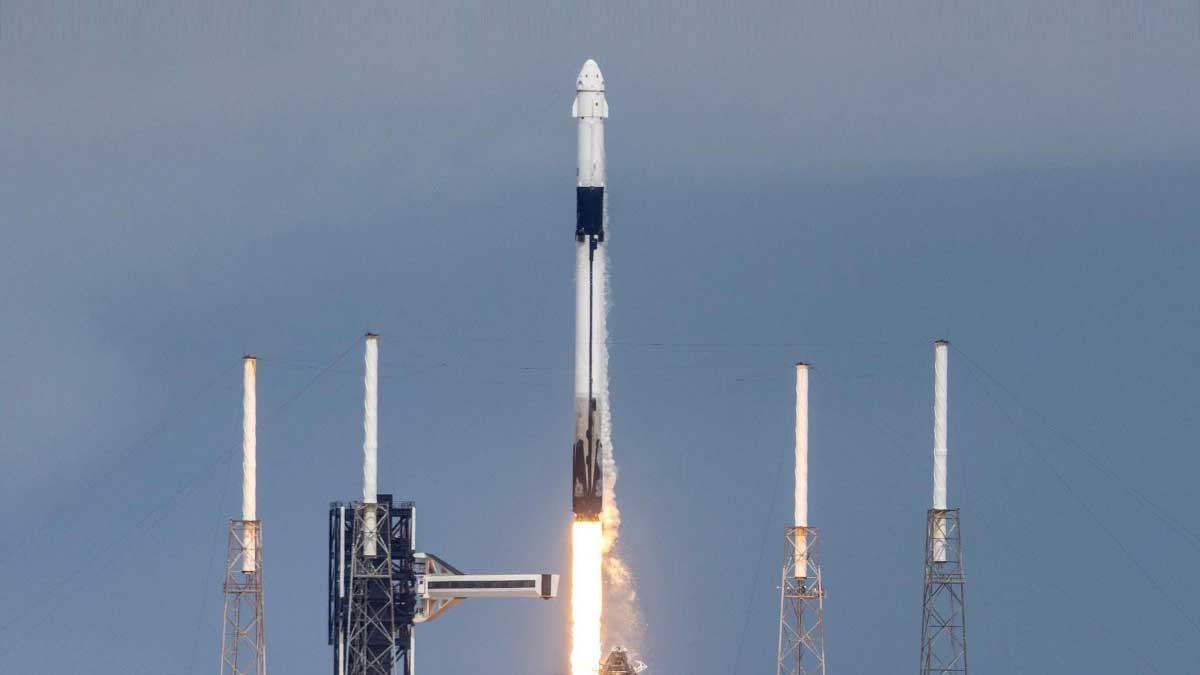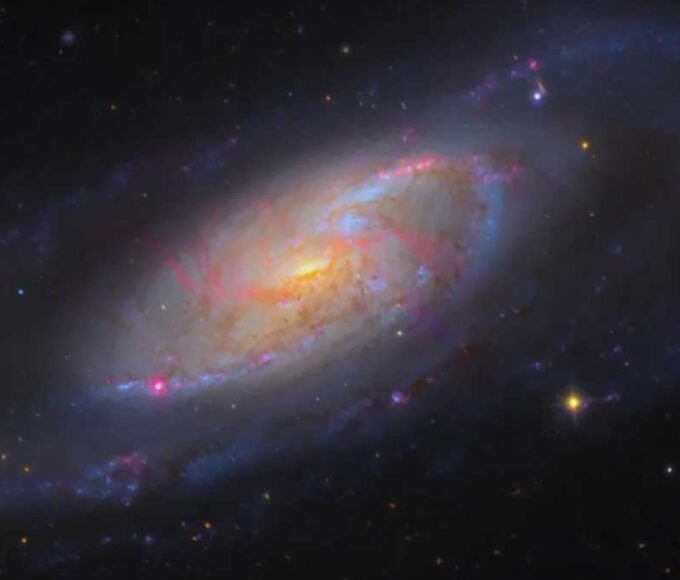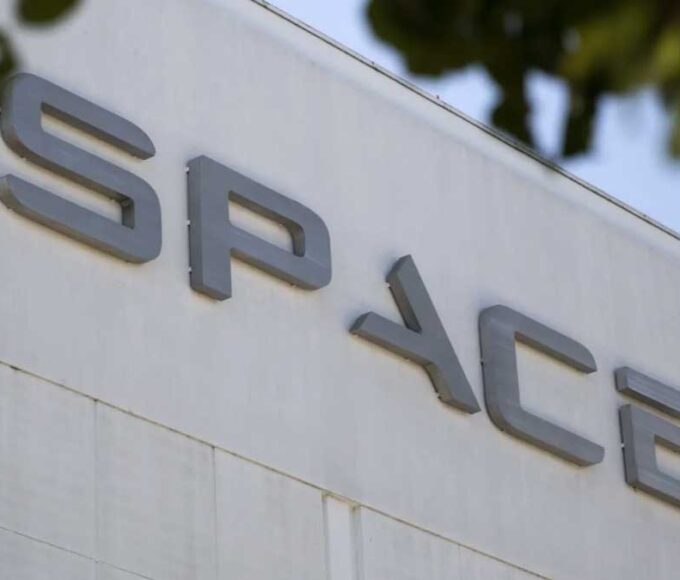- Home
- Billionaires
- Investing Newsletters
- 193CC 1000
- Article Layout 2
- Article Layout 3
- Article Layout 4
- Article Layout 5
- Article Layout 6
- Article Layout 7
- Article Layout 8
- Article Layout 9
- Article Layout 10
- Article Layout 11
- Article Layout 12
- Article Layout 13
- Article Layout 14
- Article Sidebar
- Post Format
- pages
- Archive Layouts
- Post Gallery
- Post Video Background
- Post Review
- Sponsored Post
- Leadership
- Business
- Money
- Small Business
- Innovation
- Shop
Recent Posts
SpaceX Launches Dragon to Rescue Stranded Astronauts

SpaceX’s Dragon spacecraft launched successfully from Cape Canaveral, Florida, on Saturday afternoon, marking a significant milestone in the ongoing collaboration between commercial space ventures and NASA. This mission aims to bring back two astronauts who have been stranded on the International Space Station (ISS) due to safety issues encountered with their original return vehicle, Boeing’s Starliner. The Dragon spacecraft is carrying astronauts Nick Hague and Aleksandr Gorbunov, who are expected to dock with the ISS on Sunday at approximately 5:30 p.m. This mission comes after the astronauts previously stationed on the ISS, Butch Wilmore and Suni Williams, faced an unexpected delay in their return to Earth. They have now been in space for nearly eight months, exceeding the typical six-month rotation period for ISS crew members.
Wilmore and Williams were originally slated to return in June after a relatively brief mission, but complications arose when the Boeing Starliner encountered issues shortly before its scheduled return. During its approach to the ISS, the spacecraft revealed helium leaks and malfunctioning thrusters, prompting NASA to pivot to SpaceX for the return mission. Consequently, the Dragon spacecraft launched from the Cape Canaveral Space Force Station, a departure from its traditional launch site at NASA’s Kennedy Space Center. The Dragon spacecraft has established itself as a reliable vehicle for transporting humans to the ISS, with 47 launches and 42 visits to the space station recorded on SpaceX’s official website. Capable of carrying up to seven astronauts, the Dragon is notable for being the first private spacecraft to successfully ferry humans to the ISS. Its operational capabilities and safety record have become increasingly significant as commercial space travel continues to develop and expand.
Boeing’s Starliner program has faced severe setbacks, leading to substantial financial losses for the aerospace giant. According to reports from CNBC, Boeing has lost at least $1.4 billion on the Starliner project alone, with annual losses varying between $57 million and $489 million. The company’s ongoing challenges are compounded by production issues with its 737 Max airplane, which is one of Boeing’s primary revenue sources. Earlier this year, the production of the 737 Max slowed following a serious incident involving a door blowout during an Alaska Airlines flight in January. This event led to the Federal Aviation Administration (FAA) halting a planned expansion of the plane’s production. Additionally, Boeing is grappling with a strike initiated by 33,000 workers, resulting in the temporary shutdown of multiple production lines. This labor dispute, now entering its third week, stems from Boeing’s attempt to impose what it described as its “best and final offer,” which included raises totaling 30% over four years. The International Association of Machinists and Aerospace Workers criticized Boeing for presenting the offer without engaging in meaningful discussions, as reported by The Guardian.
As Boeing navigates these labor disputes and production challenges, the company’s stock has plummeted more than 40% since the beginning of the year. The ongoing turmoil has also raised concerns about a potential downgrade from credit rating agencies S&P Global and Moody’s, which would result in the company being classified as junk status. The problems plaguing the Starliner program have prompted NASA to launch a thorough investigation into the causes behind the thruster failures that occurred during the spacecraft’s approach to the ISS in June. Following months of ground tests and analysis, NASA and Boeing struggled to reach a consensus regarding the safety and reliability of the Starliner for crewed flights. Despite Boeing’s insistence that it understood the issues and was confident in the spacecraft’s readiness, the agency opted to entrust the return mission to SpaceX.
Interestingly, Boeing’s recent unmanned Starliner return to Earth, which occurred successfully in early September, demonstrated that the spacecraft could safely land. NASA Commercial Crew Program manager Steve Stich commented on the successful trip, asserting that “it would have been a safe, successful landing with the crew on board.” However, this positive outcome did little to overshadow the fact that SpaceX was managing the return flight, a situation that highlighted the ongoing challenges faced by the Starliner program. Boeing had been awarded $4.2 billion by NASA to develop the Starliner, and the complications associated with the project have raised questions about the viability of its investment.
As SpaceX’s Dragon spacecraft embarks on its mission to bring back the stranded astronauts, it signifies a pivotal moment in the evolution of commercial space travel. The successful launch underscores SpaceX’s growing prominence in the aerospace industry and its capability to address urgent needs in crewed space missions. Meanwhile, Boeing’s struggles with the Starliner program reveal the complex dynamics of competition and collaboration within the commercial space sector. As the space race continues to unfold, the outcomes of these missions will undoubtedly shape the future of human space exploration.
Recent Posts
Categories
- 193cc Digital Assets2
- 5G1
- Aerospace & Defense46
- AI37
- Arts3
- Banking & Insurance11
- Big Data3
- Billionaires426
- Boats & Planes1
- Business328
- Careers13
- Cars & Bikes76
- CEO Network1
- CFO Network17
- CHRO Network1
- CIO Network1
- Cloud10
- CMO Network18
- Commercial Real Estate7
- Consultant1
- Consumer Tech180
- CxO1
- Cybersecurity68
- Dining1
- Diversity, Equity & Inclusion4
- Education7
- Energy8
- Enterprise Tech29
- Events11
- Fintech1
- Food & Drink2
- Franchises1
- Freelance1
- Future Of Work2
- Games141
- GIG1
- Healthcare78
- Hollywood & Entertainment186
- Houses1
- Innovation42
- Investing2
- Investing Newsletters4
- Leadership65
- Lifestyle11
- Manufacturing1
- Markets20
- Media193
- Mobile phone1
- Money13
- Personal Finance2
- Policy567
- Real Estate1
- Research6
- Retail1
- Retirement1
- Small Business1
- SportsMoney33
- Style & Beauty1
- Success Income1
- Taxes2
- Travel10
- Uncategorized8
- Vices1
- Watches & Jewelry2
- world's billionaires395
Related Articles
Universe Expanding Faster Than Expected, New Data Shows
Recent findings from the James Webb Space Telescope (JWST) have confirmed something...
By 193cc Agency CouncilDecember 10, 2024Russian Soldier Life Expectancy: One Month Amid Losses
In the ongoing war between Russia and Ukraine, a stark reality faces...
By 193cc Agency CouncilNovember 29, 2024Trump Joins Elon Musk for SpaceX Starship Test Flight
President-elect Donald Trump is expected to attend the latest launch of SpaceX’s...
By 193cc Agency CouncilNovember 19, 2024Earth’s Temporary Mini-Moon to Orbit Next Week
Next week, Earth will temporarily gain a second moon as a small...
By 193cc Agency CouncilSeptember 20, 2024















Leave a comment